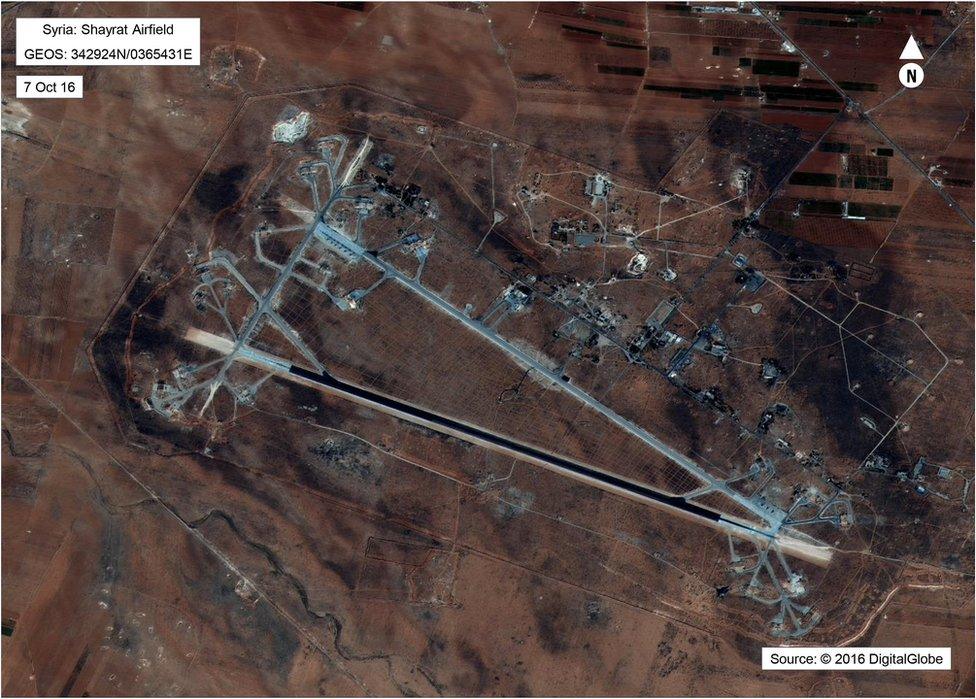Syria war: Is Trump slipping into Syria quagmire?
- Published
WATCH: What is Trump's plan in Syria?
President Donald Trump drew his sharpest distinction from his predecessor, Barack Obama, by swiftly ordering a military response to the apparent use of chemical weapons by the regime of Syrian President Bashar al-Assad earlier this week.
Unlike President Obama, who hesitated in 2013 when confronted with a clear violation of his red line, Trump did not seek allies, ask Congress for permission, or evidently worry about long-term implications.
President Trump, in brief remarks at Mar-a-Lago following a dinner with Chinese President Xi Jinping, indicated that the strikes targeted the Syrian military forces that carried out the Idlib chemical weapon attack, an action he suggested "crossed a lot of lines".
The response sent a message, that the use of chemical weapons in Syria carried consequences.
How has Donald Trump's position on Syria changed?
While a dramatic display of military force, it is unclear what impact it will have on the ground. Fifty-nine cruise missiles are unlikely to change Mr Assad's no-holds-barred approach to the six-year old Syrian civil war.
As Mr Obama discovered after negotiating the removal of most (but evidently not all) of Syria's chemical stocks in 2013, it still leaves the Assad regime free to use conventional weapons, and chlorine barrel bombs, to continue his assault on the so-called moderate Syrian opposition and civilians, backed fully by Russia and Iran.
Given that reality, Senators John McCain and Lindsey Graham have already encouraged the president to go further and take Syria's air force "completely out of the fight".
The Pentagon has released video of missiles being launched from US Navy ships, targeted at a Syrian airfield.
Mr Obama feared just such a slippery slope. He chose to define America's vital interest in Syria more narrowly, defeating the so-called Islamic State without getting more deeply involved in another costly Middle East quagmire.
Ironically, until today, so did Mr Trump, who opposed military action in 2013 and was elected to fix problems in America, not Syria. As he acknowledged, he is now responsible for the situation in Syria. But beyond appearing decisive, it's doubtful he yet knows what to do about it.
P.J. Crowley is a former US Assistant Secretary of State. He is now a professor at The George Washington University and author of Red Line: American Foreign Policy in a Time of Fractured Politics and Failing States.

The US Defense Department released aerial images of Shayrat airfield near the western city of Homs